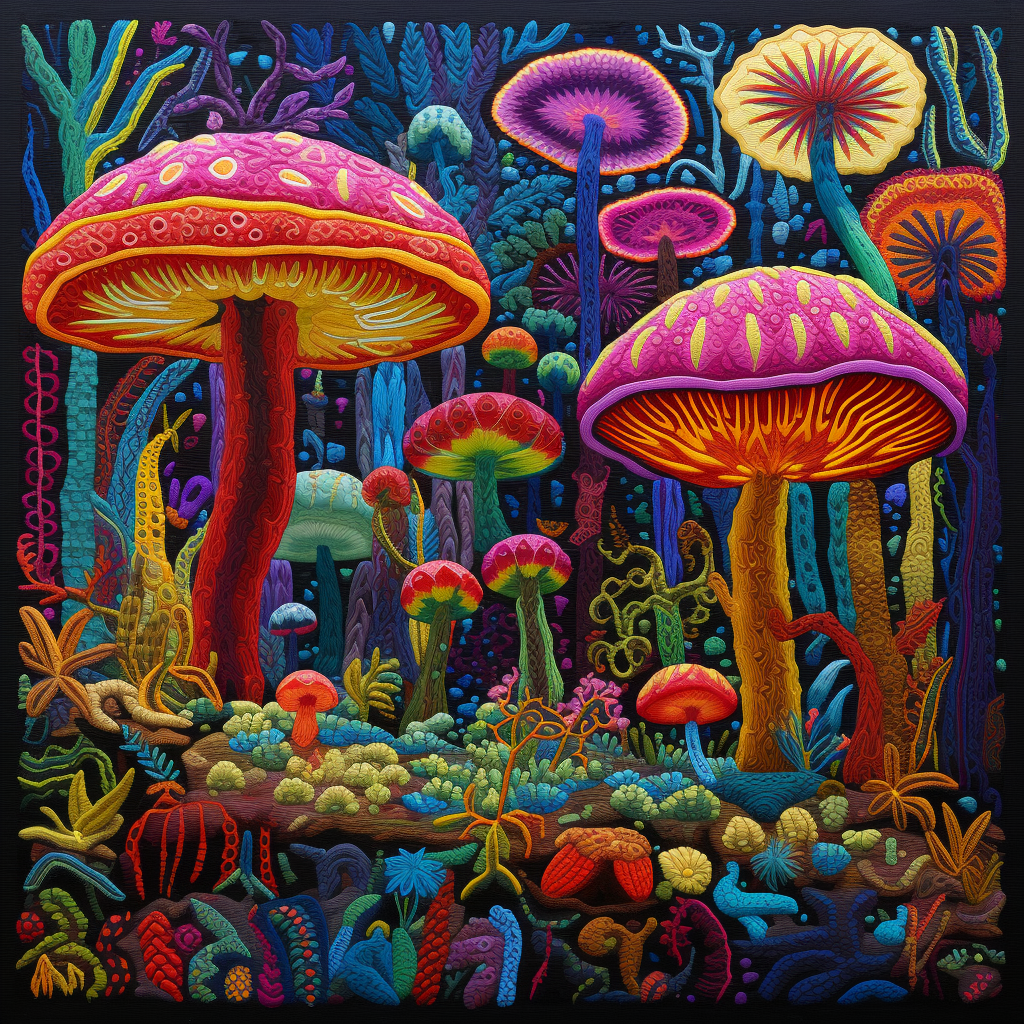The world of psychedelic science is experiencing rapid expansion. Yet, it grapples with a fundamental issue: the long-standing dominance of the Western perspective. This oversight not only marginalizes the profound wisdom of Indigenous cultures but also inadvertently narrows our understanding of psychedelics.
A Historical Perspective of Western Psychedelic Perspective
The Western engagement with psychedelics isn’t a recent phenomenon. It traces back to the countercultural movements of the 1960s and even earlier when literary figures like Coleridge, Poe, and Shelley sought inspiration from mind-altering substances. Yet, in this exploration, there has been a tendency to appropriate and overlook the cultural contexts of these substances. The result? A dilution of their inherent significance and a potential misrepresentation of their effects.
This isn’t just an academic misstep. It’s a reflection of enduring colonial legacies that have continuously sidelined Indigenous voices. By repackaging and standardizing these substances, often into capsules for controlled dosages, and generally viewing these medicines as mere tools, the West risks alienating them from their profound roots and the invaluable traditions they represent. This is not merely a lamentable loss of ancient wisdom, but it fundamentally undermines the inherent potency and transformative potential these medicines offer.
Science, with its empirical rigor and analytical precision, has undoubtedly propelled our understanding of the universe to remarkable heights. Its methodical approach, characterized by dissecting problems into manageable components, has been instrumental in decoding complexities that define natural phenomena. However, this reductionist nature of science, while powerful, also bears its own limitations. Often, in the pursuit of compartmentalized knowledge, the holistic appreciation of interconnected variables and broader spectrums may be obscured. Such a methodology, while enabling detailed analysis, might inadvertently miss the encompassing picture where various elements interplay in a symphony of causality and influence.
In Ilya Prigogine‘s 1984 book, Order Out of Chaos, a quote rings true.
“One of the most highly developed skills in contemporary Western civilization is dissection: the splitting up of problems into their smallest possible components. We are good at it. So good, we often forget to put the pieces back together again.“
This insight underscores the need for a more integrative approach in scientific inquiry—one that values not just the granularity of dissected components but also the illuminating wisdom found in the interconnectedness and the overarching symphony of variables that paint the broader strokes of reality’s canvas. Thus, it becomes a call for a science that, while reveling in detailed dissection, also fosters a vision that sees, appreciates, and understands the united wholeness of the universal tapestry.
How to Incorporate Indigenous Wisdom into Psychedelic Understanding
The following quote from Tyson Yunkaporta, Sand Talk: How Indigenous Thinking Can Save the World offers a quick explanation of how, In the quest to bridge the gap between Western perspectives and Indigenous wisdom, it’s essential to recognize the inherent power dynamics and biases that come with one’s cultural background. Engaging with diverse literary works can offer insights into these dynamics, as one becomes more attuned to the nuances of different cultures and their interactions. The following quote encapsulates this sentiment, highlighting the importance of self-awareness and cultural humility in the broader context of sustainability and interconnectedness. It underscores the transformative realization that while each of us holds a unique position, we are all intricately linked within a vast, complex system:
“Understanding your own culture and the ways it interacts with others, particularly the power dynamics of it, is far more appreciated. My reading of Germane Greer when I was a young lad was a lot more conducive to forming relationships with European females than my reading of Dante was–and that was more about my understanding of my male privilege and controlling its excess than being an export on women’s literature or issues. This kind of cultural humility is a useful exercise in understanding your role as an agent of sustainability in a complex system. It is difficult to relinquish the illusions of power and delusions of exceptionalism that come with privilege. But it is strangely liberating to realise your true status as a node in a single network. There is honour to be found in this role, and a certain dignified agency. You won’t be swallowed up by a hive mind or individuality–you will retain your autonomy while simultaneously being profoundly interdependent and connected.”
The path forward isn’t about diminishing scientific exploration. It’s about ensuring that it doesn’t overshadow or dismiss Indigenous knowledge. True progress in psychedelic science requires a genuine appreciation of Indigenous contributions. These plants and fungi, revered and utilized by various cultures across the globe for thousands of years, have nuances that transcend standardized scientific categorizations.
While anthropology initially had its roots in colonialism, it has since evolved, becoming a discipline that seeks to understand and value Indigenous knowledge systems. As we navigate the “psychedelic renaissance,” it’s imperative to usher in a paradigm that views Indigenous perspectives as coequal partners in scientific discourse. Such an approach not only challenges colonial remnants but also promises a richer, multi-dimensional understanding that can elevate our collective research endeavors.
Conclusion
As we journey deeper into the psychedelic renaissance, introspection, and methodological evolution are paramount. By wholeheartedly embracing Indigenous knowledge systems and integrating them harmoniously with scientific methodologies, we can chart a course for a more inclusive and robust exploration of psychedelics. This approach not only pays homage to the traditions from which these medicines emerged but also envisions a future enriched by diverse perspectives contributing to our shared understanding.
By acknowledging and valuing the rich traditions, holistic perspectives, and the intricate balance between reductionist analysis and holistic synthesis, we can pave the way for a more comprehensive, nuanced, and inclusive approach to psychedelic-assisted therapy.

